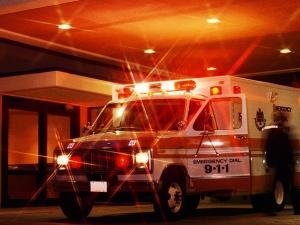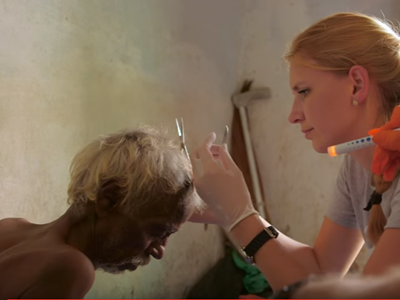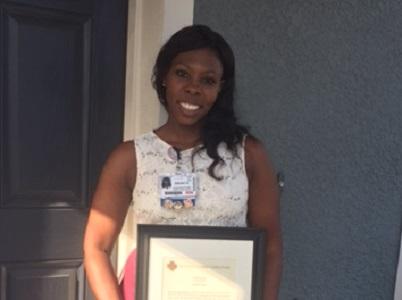Featured
Tags
Share
- Home / Blog / Faculty and Staff / 5 Things to Know about Emergency Nursing
5 Things to Know about Emergency Nursing

Thanks in part to TV dramas, emergency nursing – or emergency department (ED) nursing – is one of the highest-profile and most recognizable nursing specialties. These nurses treat patients who are critically ill or injured, often when time is of the essence and the cause or extent of the illness or injury is still unknown.
To get the skinny on this specialty, we spoke with Dave Zaworski, MSN, RN, a professor at Chamberlain College of Nursing’s Cleveland campus. He has 30 years of experience in nursing, including time in a Level I trauma center that had one of the country’s busiest medical helicopter services.
Prof. Zaworski acknowledged that ED nursing has a certain mystique but also said that some of the aspects of its popular image might not be totally accurate.
“Emergency nursing is not necessarily as glamorous as you think,” he said. “But it’s very rewarding, as long as you’re in the right mindset to take care of people in any set of circumstances.”
The keyword is variety.
The fast pace and unpredictability of the work are what draw many nurses to the emergency department.
ED nurses treat everyone from newborns to the elderly, with every conceivable illness, injury or condition. No two shifts are the same.
“You never know what’s coming through the door,” said Professor Zaworski. “You could go from a sore throat to an all-out, multi-vehicle accident with multiple trauma victims.”
The variety means that emergency nurses need to have top-notch critical thinking skills and be highly proficient in any number of areas.
“You can be dealing with every single thing you learned in school – there is no one focus.”
You’ll need to get your priorities straight.
One of the strongest skills that nurses need in the emergency department is prioritization – which is why Prof. Zaworski recommends that prospective ED nurses gain a few years of experience first.
“We can talk about the hierarchy of needs, but until you actually see that in practice and have lived it, it can be a difficult concept to master,” he said. “I always say that new nurses should do one or two years on a medical surgical floor before heading to the ED. Start by taking care of multiple patients there and get used to prioritization, because in the ED you’ll be doing the same thing, just on a different scale.”
There’s often a real sense of camaraderie.
Here’s an area where the TV shows might have gotten it right.
“When you’re new, you need to prove your worth,” he said. “But once you do, it’s very much a team effort, especially at a teaching hospital or a large institution.”
You’ll need flexibility and a sense of humor.
The ability to switch gears – and do so with a smile – is a key part of an emergency nurse’s job description.
Prof. Zaworski refers to it as being like a chameleon – letting your patients dictate your attitude, and being for them what they need you to be.
“You have to be there with the family who’s grieving, but you also have to be able to smile to a young child, to somebody who’s there for something not that serious. You have to be have a sense of humor to put people at ease.”
You care for patients, but you’ll need to care for yourself as well.
There’s no getting around it – emergency nursing offers its own set of challenges.
For one, ED nurses see a lot of suffering and a lot of death. Effective coping strategies and taking the time to care for yourself are top priorities.
Still, there will be patients and losses that stick with you. Prof. Zaworski shares many of their stories with his students at Chamberlain.
“Do emergency nurses cry sometimes?” he said. “Hopefully. If not, you’ve lost a bit of your humanity.”
ED nurses can also experience a certain amount of frustration, such as when patients use the emergency room inappropriately – and that can affect their attitude.
“Emergency nurses have the potential to become a bit cynical and sarcastic, depending on their underlying attitudes, people they’re working with, and how these people may mentor or influence them.”
To overcome this challenge, he said, you need to be introspective and focus on your own motivations and role as a caregiver.
“As I have grown and become more aware of myself as a practitioner and a human being, I have realized that no matter why they come in or how often they come in, I can only teach my patients as much as they are willing to learn. Beyond that, I just have to take care of them,” he said.
“You can be a very good emergency nurse without that deeper level of compassion, but to be a whole nurse, it takes a little bit of everything – the compassion as well as the skills, the drive and the determination.”
To learn more about emergency nursing, visit the Emergency Nurses Association.
By Natalie Sobolewski
More from Faculty and Staff
Request More Information
To receive the Chamberlain University Program Guide, including associated career paths, please select a program of study.







